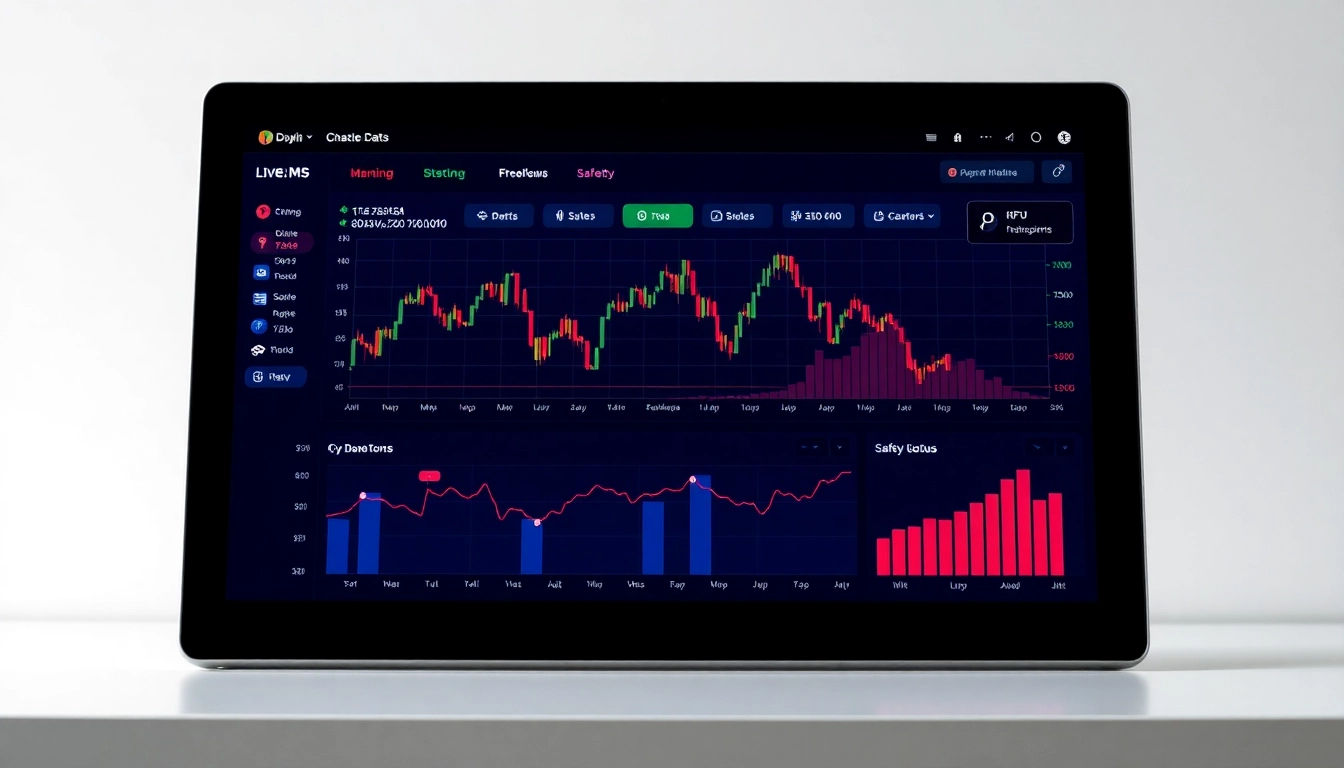Finding the Best Investment Funds UK: A Comprehensive Guide for 2024
Investing wisely is essential for securing a stable financial future, especially within the dynamic and regulated landscape of the UK market. As the investment environment continues to evolve amid global economic shifts, understanding how to identify the Best Investment Funds UK becomes more crucial than ever. Whether you’re a seasoned investor or just starting out, this guide aims to equip you with the insights needed to make informed decisions tailored to your financial goals.
Understanding the Types of Investment Funds Available in the UK
The UK investment fund market offers a broad spectrum of options, each with distinct characteristics, risk profiles, and investment goals. Recognizing these types helps investors align their choices with their financial appetite and long-term objectives.
Unit Trusts and OEICs
Unit trusts and Open-Ended Investment Companies (OEICs) are common pooled investment vehicles, allowing investors to access diversified portfolios managed by professional fund managers. They are suitable for both cautious and aggressive investors, depending on the underlying assets.
Investment Trusts
Investment trusts are publicly traded companies that invest in a diversified portfolio of assets. They tend to be less liquid but often offer premium management and potential for higher yields, making them an attractive option for income-focused investors.
ETFs and Index Funds
Exchange-Traded Funds (ETFs) and index funds are popular for their low-cost structure and transparency. They track specific indices such as the FTSE 100 or FTSE 250, providing instant diversification aligned with market performance.
Key Features and Benefits of Investment Funds
Investment funds provide several advantages that can significantly benefit your portfolio:
- Diversification: Spreading investments across various assets reduces risk.
- Professional Management: Expert fund managers conduct research and rebalance portfolios regularly.
- Accessibility: Funds typically require lower minimum investments, making them available to a broad audience.
- Liquidity: Most funds can be bought or sold easily, providing flexibility.
- Tax Efficiency: Certain funds, like ISAs or pension-linked funds, offer tax advantages.
Understanding these benefits helps investors appreciate the value proposition of fund investing—balancing risk and reward effectively.
Common Fees and Charges in UK Investment Funds
One of the critical considerations when selecting a fund is understanding its fee structure, as fees can erode returns over time.
Initial and Ongoing Charges
Most funds charge an initial fee upon investment and annual management fees. Transparent disclosure of these fees is essential for accurate performance assessment.
Exit Fees and Transaction Costs
Some funds impose fees upon withdrawal or purchase, which can impact your overall return. Transaction costs arising from buying or selling assets within the fund also contribute to expenses.
Performance Fees
Particularly in active funds, performance fees are charged if the fund exceeds certain benchmarks, aligning manager incentives with investment success.
Careful evaluation of fees helps ensure your chosen funds deliver optimal value for the costs incurred.
Criteria for Selecting the Best Investment Funds UK
Choosing the right fund involves analyzing various factors that influence future performance and alignment with investment goals.
Performance History and Track Record
Historical performance provides insights into a fund’s consistency and resilience over different market cycles. While past returns don’t guarantee future success, they are indicative of managerial skill and strategy stability.
Fund Manager Reputation and Experience
Experienced managers with a proven track record tend to navigate market fluctuations more effectively. Research their investment philosophy, tenure, and how they have handled previous downturns.
Risk Levels and Investment Objectives
Align your risk tolerance with fund strategies—whether focusing on growth, value, income, or balanced approaches. A clear understanding of the fund’s investment objective ensures it complements your overall financial plan.
Evaluating and Comparing Investment Funds Effectively
To make sound investment choices, leverage various analytical tools and resources:
Review Fund Fact Sheets and Performance Metrics
These documents typically summarize key data such as annual returns, volatility, asset allocation, and fees. Comparing these metrics across funds reveals relative strengths and weaknesses.
Assessing Management Styles and Strategies
Determine whether a fund adopts active or passive management. Active funds aim to outperform benchmarks through strategic picks, whereas passive funds track indices at lower costs.
Utilizing Online Tools and Resources for Comparison
Platforms like Morningstar or FCA-registered fund comparison tools allow investors to filter options based on performance, risk, fees, and other criteria, facilitating informed decision-making.
Strategies for Optimizing Investment Outcomes with UK Funds
Maximizing returns requires disciplined strategies aligned with market conditions and personal goals:
Diversification Across Asset Classes
Spreading investments across equities, bonds, property, and alternative assets minimizes exposure to adverse events in any single sector.
Timing and Market Cycle Considerations
While timing markets is challenging, understanding economic cycles can help investors adjust their allocations—potentially reducing holdings during overvalued periods and increasing during downturns.
Regular Portfolio Rebalancing and Monitoring
Periodic review and rebalancing ensure your portfolio remains aligned with your risk profile and goals, especially as market values shift over time.
Emerging Trends and Future Outlook for Best Investment Funds UK
The investment landscape is continually evolving, influenced by economic policies, technological advancements, and societal shifts.
Impact of Economic Policies and Market Regulations
Government initiatives, Brexit-related policies, and regulatory reforms significantly impact fund performance and investor confidence.
Growth Sectors and Thematic Funds to Watch
Emerging sectors such as renewable energy, technology, and healthcare offer promising opportunities, especially within thematic funds focusing on sustainability and innovation.
Integrating Sustainable and Ethical Investment Options
Growing demand for ESG (Environmental, Social, Governance) investing means selecting funds that align with ethical principles not only benefits society but may also enhance long-term returns.



